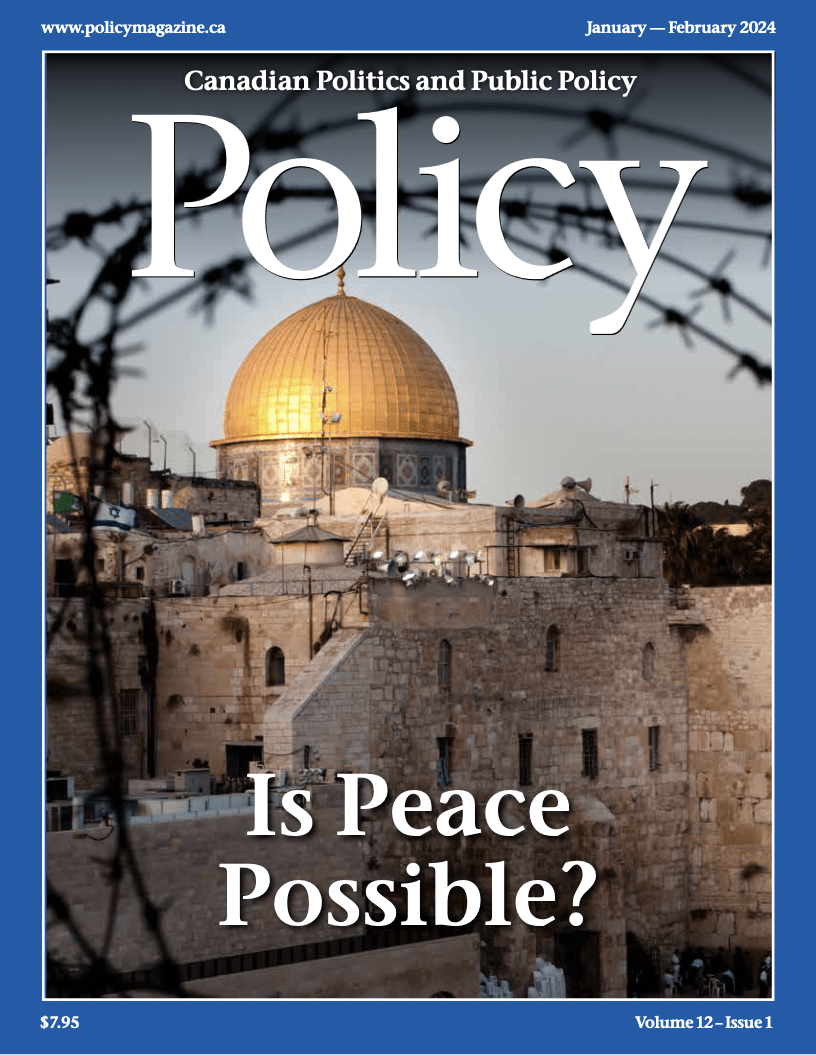Our Online Series: Is Peace Possible?

Welcome to our cover package on the longer-term implications of the war between Israel and Hamas. From the medieval barbarity of the October 7th Hamas rampage to the breathtaking intelligence failure that enabled it to the scorched-earth devastation of Gaza to the unprecedented political dysfunction on both sides, this time is different. How will it change the calculus on the prospects for peace beyond the war? We have a selection of perspectives on the crisis from our usual roster of insightful contributors.
Opening our cover package, former diplomat Jeremy Kinsman, who served as ambassador to Russia, to the European Union and to Italy, and as high commissioner to the United Kingdom, gives us an overview and insight as to how Israelis and Palestinians might move forward in, The Possibilities for Peace.
Former Prime Minister Brian Mulroney, in accepting the Herzl Award from the World Jewish Congress in New York in November, made an eloquent acceptance speech indispensable to our cover package. “Antisemitism, born in ignorance and nurtured in envy,” said the former prime minister, “is the stepchild of delusion and evil and is a scourge that must be eradicated.”
In Why, Once Again, Israel Will Survive, McGill history professor, US presidential historian Gil Troy, who lives mostly in Tel Aviv, conveys the mood on the ground in the wake of “Israel’s 9/11”. “Now comes Israel’s unconventional thinkers’ greatest test,” writes Troy, “how not to lose the war you seem to have won by blowing the peace.”
In The Children of Gaza Deserve Peace, Policy Contributing Writer Aftab Ahmed describes the terrible death toll among Palestinian children produced by Israel’s bombardment, and where it stands as a test of international humanitarian law.
Our regular contributors former Privy Council Clerk Kevin Lynch and former White House aide Paul Deegan err eloquently on the side of moral clarity with, Canada’s Moment to Show Leadership on Antisemitism.
And, from Policy Editor and Publisher Lisa Van Dusen, Israelis, Palestinians and Democratic Peace Theory, explores how the hijacking of democracy on both sides has influenced outcomes.
Visit us at Policy Online, where you’ll find our Columns, Online Analysis, Book Reviews, Policy Dispatches, Emerging Voices and Verbatim sections.
